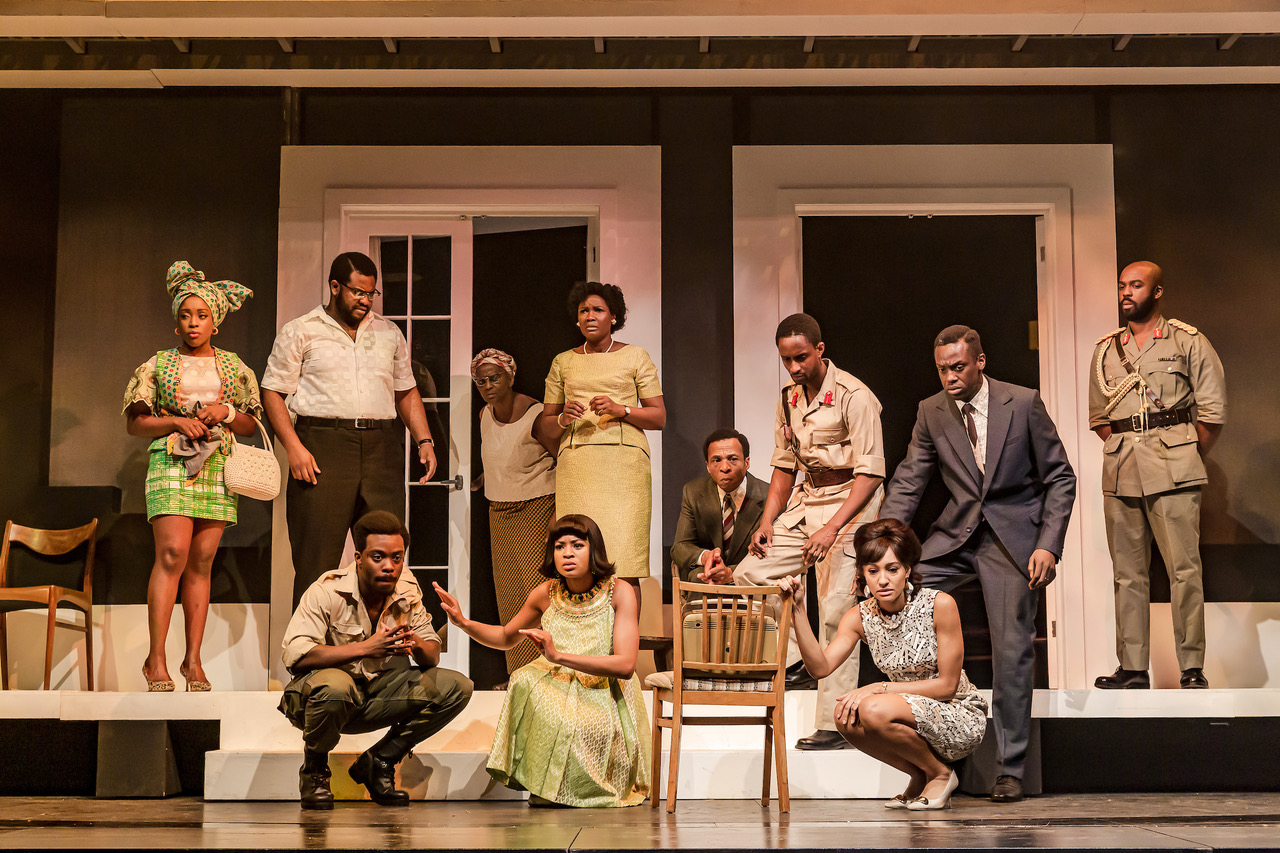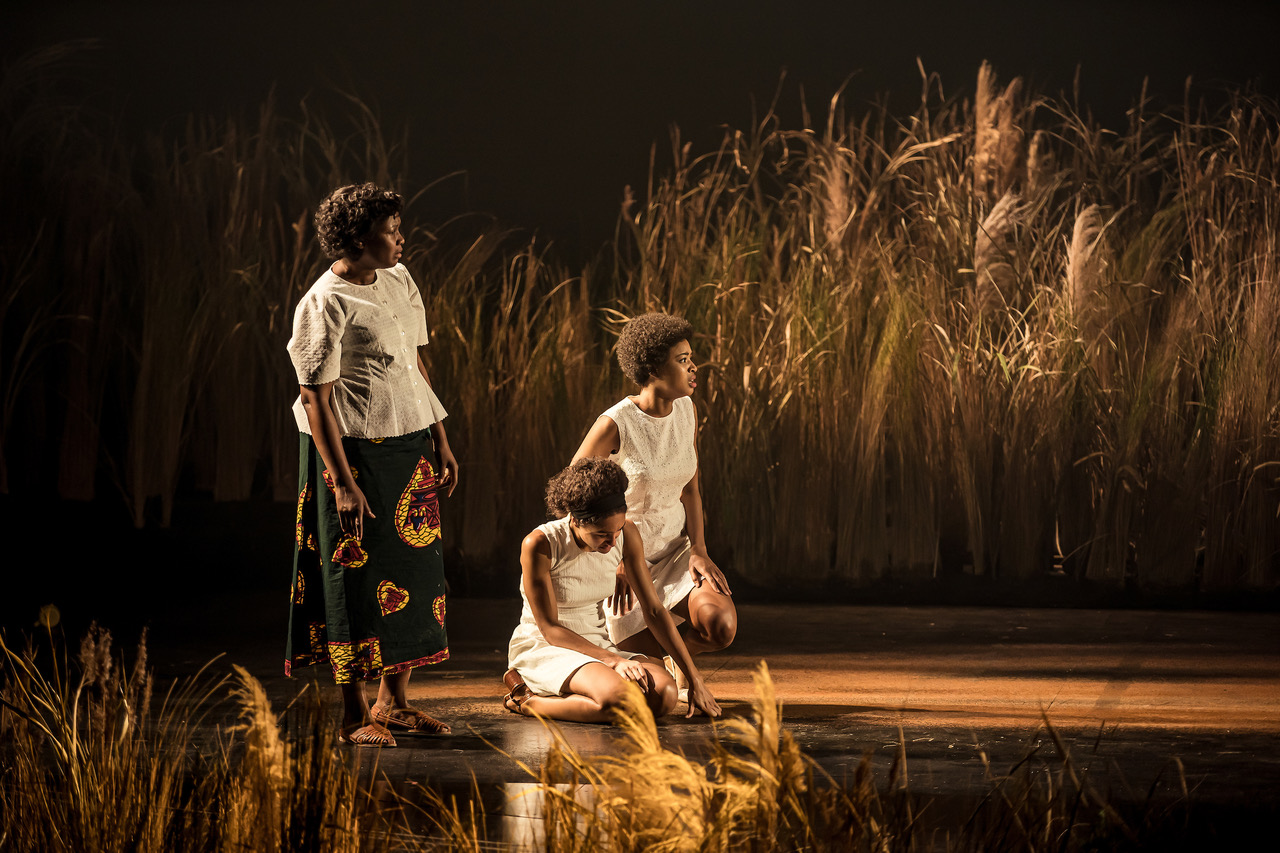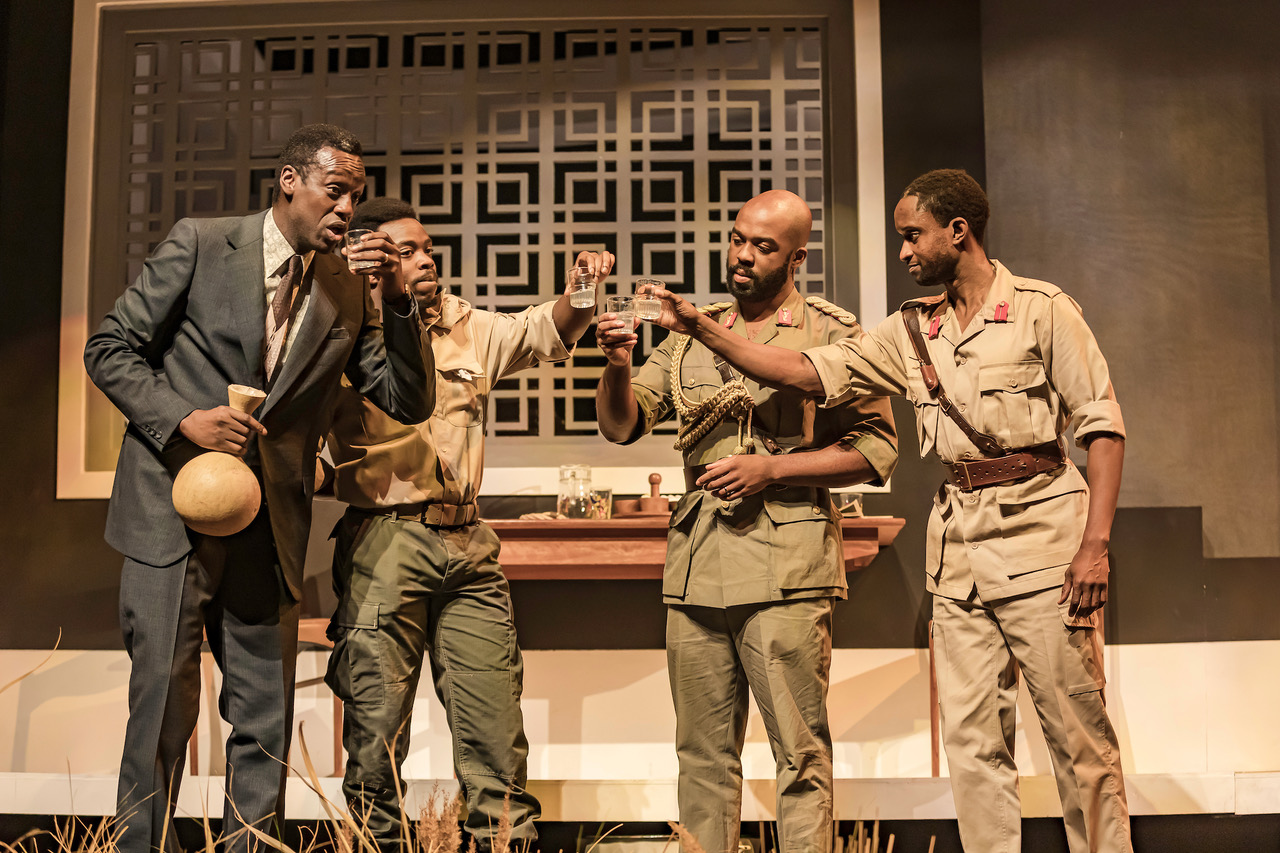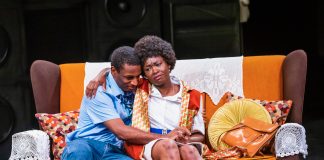If you were made to study Chekov’s Three Sisters in school, then perhaps like me you were left a little confused, exhausted and frankly unable to relate to any of the characters. Thankfully playwright Inua Ellams (Barber Shop Chronicles) has breathed a new life into these tired, unrelatable sisters. No longer set in Russia, we are instead transported to Nigeria where we get to witness a family in the midst of the Biafran war.
The Sisters – Lola (Sarah Niles), Udo (Racheal Ofori) & Nne Chukwu (Natalie Simpson) appear to have it all going for them. They live well, they have a great family, they are well educated and they are young and healthy. However, after losing their father they become riddled with grief and long to go back to their home in Lagos.
the well-developed script, characters and storyline made me love this play
Lola is the eldest and is a wise schoolteacher who is passionate about teaching her pupils the truth. Nne is in the middle and is married to Onyinyechukwu (Sule Rimi) who adores her, but the feeling isn’t mutual. Udo; the youngest has hopes for her future as she searches for her purpose. The sisters have a brother called Dimgba (Tobi Bamtefa), who is well educated and would make the ideal husband to the right woman. Unfortunately, in the hands of the wrong women, no amount of education can give him the wisdom he needs to make the right choices.
Just like any normal family we see their lives stretch and bend as they deal with conflict, jealousy, adultery and terrible decisions. Whilst the cracks start to form on the inside of this family, outside, Nigeria is also falling apart. With Lagos and Biafra at war, the audience is taught a history lesson that our schools failed to teach us. Instead of being taught about the battle of Hastings I would have rather learnt about all the wars Britain funded purely to help them stay on top.
The Biafran war (also known as the Nigerian Civil War) began on July 6, 1967. The war fought to counter the withdrawal of Biafra from Nigeria and lasted for 30 months (ending in 1970). Biafra represented Igbo people who felt they could no longer coexist with the Northern-dominated federal government. The war happened due to a lack of stability and peace after Nigeria gained their independence in 1960. Sadly, as with all wars, tragedy affected a great deal of people, with millions of Igbos losing lives, infrastructure and money. Up to three million people died due to conflict, disease and hunger caused by Nigerian forces.
Inua breaks down the Biafran war in such a clear way that it made me feel as though I was right there in Nigeria. This combined with the well-developed script, characters and storyline made me love this play (and if you have read any of my other reviews you’ll know I don’t use that word lightly!) I was blown away by every scene. From laughter to tears, I felt drawn to so many characters and could understand both their strengths and flaws.
Similar to me, the rest of the audience were gripped – as they hissed at Abosede (Ronke Adekoluejo) who plays her wicked character like a BOSS.; gasped at Ikemba (Ken Nwosu) whose actions become questionable amongst his relationship choices and chuckled at Nma (Anni Domingo) who plays her character so perfectly.
an historical gem and a must see for everyone
Director Nadia Fall has outdone herself on this effortlessly, believable piece. The set design, costumes, sound and lighting were all exceptional and I completely felt immersed in the family home located in the middle of a war-torn country.
Inua’s version of this classic play has all the spice and culture we all were missing when we had to study Chekov’s version at school. He brought life to the play and opened my eyes to another side of the play. He uses this play as the perfect platform to speak truth and light to all the audience and I really respect that.
Three Sisters was a delight to watch and made me reflect on both my own life and the lives of those in the past. It is an historical gem and a must see for everyone. Don’t hesitate to watch this play!



























